Bang Xie Maocha 2007, Pu’er shengcha
$ 24.30
Whipping Rattan Tea
In historical herbal literature, tea is referred to as bitter, “extremely cold” to the body constituents, but effectively detoxicating. That basically is what is the raw tea leaf. While green tea is cooked, and most white tea is from plants that are severely tamed through breeding, Pu’er maocha maybe the closest thing one can get commercially nowadays for what the ancients had referred to.
Yet in order to offer a tea that is taste worthy, we have to find plants that are strong and soil that is rich to provide that potential. And dry those leaves from the first flush and age them well to round off all the edges and deepen the tastes.
A Whipping Rattan Tea bush is such pruned that buds just flush in the tips of its few branches. All the plant’s nutrients are thus focused in these few young leaves. We think that would be good raw material for us to process and age.
Presenting the very special Whipping Rattan Bang Xie Maocha, aged since 2007. A unique Pu’er tea in every way.
Net weight: 40 g (1.4 oz) in wide Kraft-alu pack
In stock
珍藏明前 邦協藤條茶
Taste profile
Nose: A properly aged maocha pu’er should smell fresh and refreshing, as this Bang Xie does. On infusion, the mildly floral aroma with steamed grain overtone carries accents of mung beans and a distinctive, yet sophisticated spicy note.
Palate: Initially soft and supple liquor that later offers a soft kick of spice and lime mid-tones. Undertone of sun-dried jujube throughout but not too sweet. The cooling sensation comes afterwards accompanied with very light touches of fruit sweetness. Finish: Undertones of marmalade and light tints of chilli throughout.
Infusion tips
For a big pot of tea or just a mugful on your desk, make it with 0.5 ~ 1 g per 100 ml of water. The tip is for larger pot, use less leaves but longer time, and vice versa.
Don’t forget to blanch it thoroughly first, and always use 100°C water.
However, to discover more about this rather rare maocha, try using 8 g in your 150 ml infusion vessel for 20 sec in the initial infusion. Increase infusion time incrementally in subsequent infusions.
For more info, please refer to this article: About Infusing Pu’er Maocha
Whipping Rattan Tea — Teng Tiao Cha
In the 1930’s when the former regime in the Republic of China ( as opposite of the current one of the “People’s Republic” ) intended to make tea a vital commodity for export, they sent a specialist team to investigate the best production locations in Yunnan. Lincang, where Bang Xie still is a part of today, had then become one of the major base because of its richness in flora and terra. Wild and native tea trees had always been a part of life in this area. Although through a later fierce civil war and destructive political fights the tea gardens there were unattended to, the fortune of Bang Xie’s special “whipping rattan” tea plants has been rediscovered and made use of in recent decades.
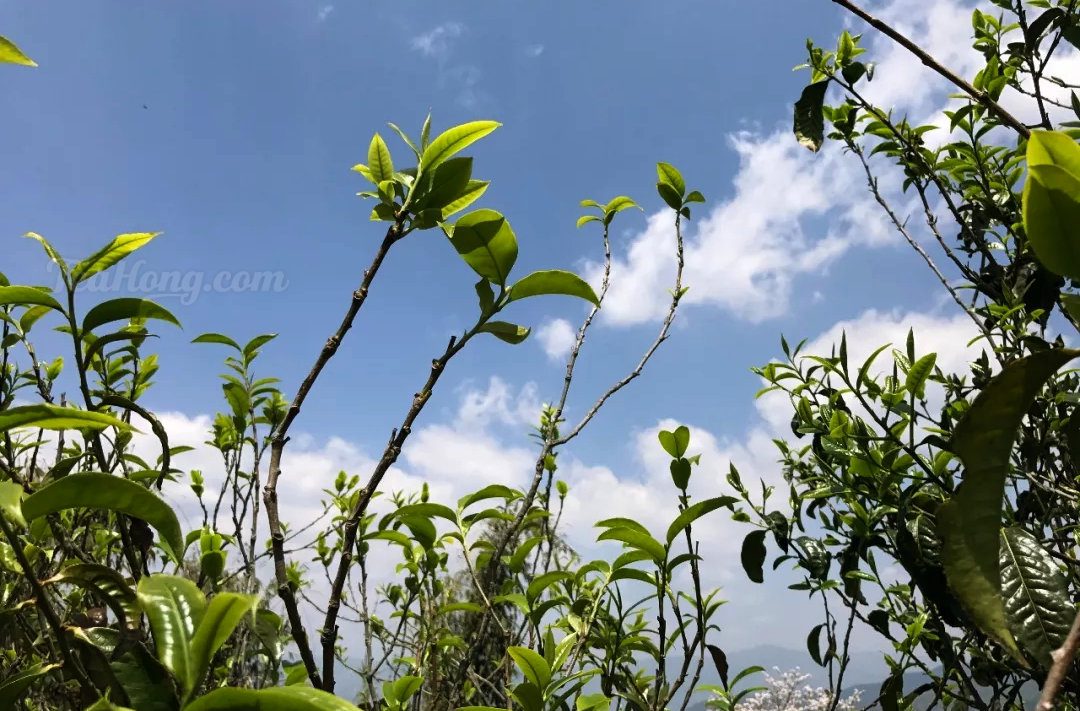
A photo of “Whipping Rattan” tea bushes showing how tea leaves bud from mostly tips of the slender branches.
“Teng Tiao” Cha — bushes that were pruned in such a way that the branches were slender and almost bare except for the tips, had been there in smaller scale production and hobbies before the 30’s. The term teng tiao refers to whipping rattan, a half-inch thick rattan branch used by parents or teachers for corporal punishment in older days, which was a common practice only until recent decades.
This “bonsai” type of physical character had somehow maintained in its cutting propagations and found their way in production gardens. These gardens had been abandoned since the 1940’s but their tea trees have been growing freely. Somehow locals and dealers begin calling them wild Teng Tiao Cha. Since the 90’s people have gradually returned to tea and by now, almost all of Bang Xie live on the leaves gathered from these “wild” gardens.
Additional information
| Weight | 90 g |
|---|---|
| Dimensions | 18 × 9 × 5 cm |
| Net weight: | |
| Tea category: | |
| Class: | |
| Recommendation: | |
| TCM character: | |
| Packaging: | |
| Infusion color: | |
| Vintage |
Only logged in customers who have purchased this product may leave a review.



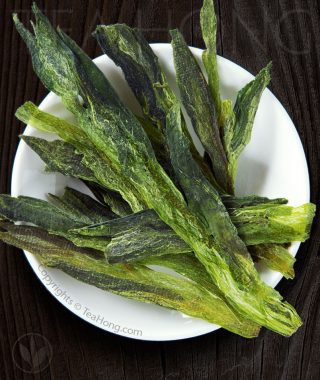
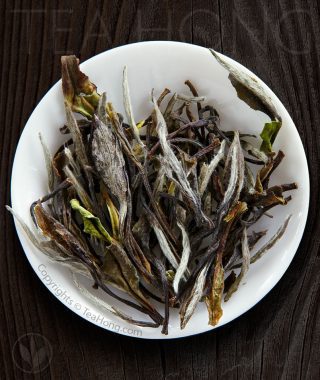
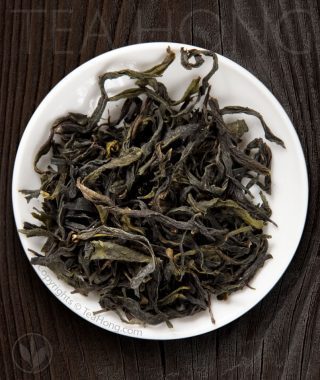
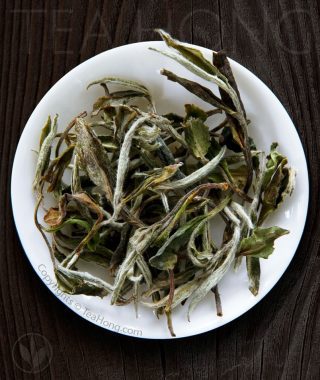
Reviews(0)
There are no reviews yet.